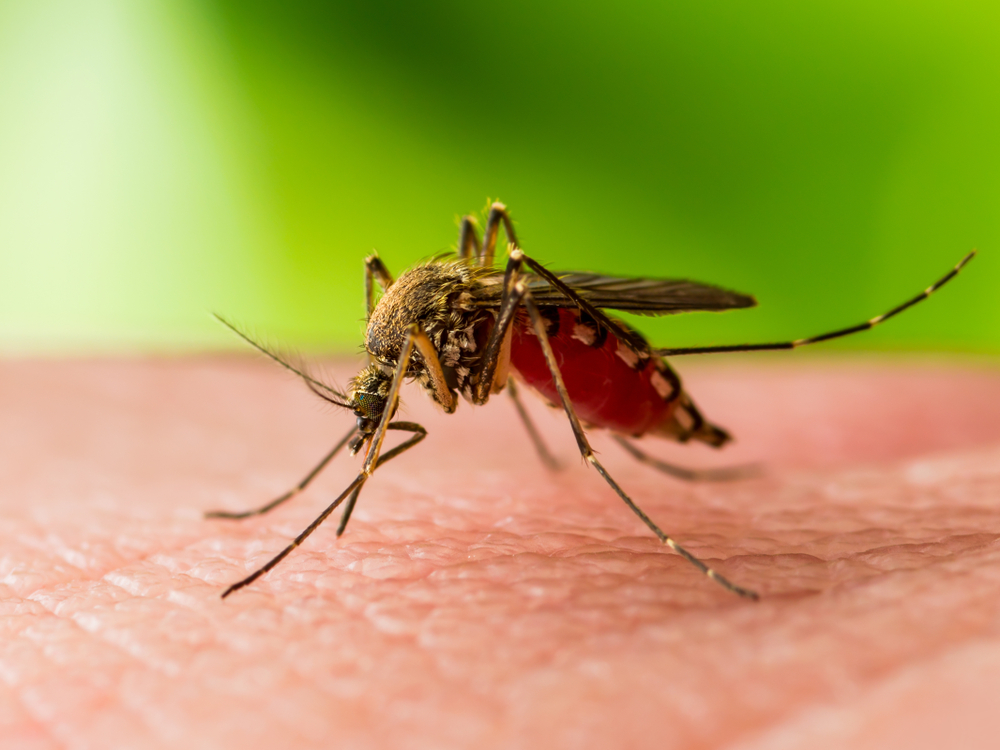Although April is National Heartworm Awareness Month, this serious disease should be highlighted all year long. You have no doubt heard of heartworm disease, but do you know all the ins and outs of the disease, and exactly how the serious condition affects your pet? To help clear up any confusion, our Oliver Animal Hospital team answers common heartworm disease and prevention questions.
Question: How can my pet get heartworm disease?
Answer: Heartworm larvae are transmitted when a mosquito bites your pet. The larvae move through your pet’s bloodstream to the major blood vessels surrounding the heart and lungs, growing and maturing as they travel, reaching up to a foot in length, and scarring your pet’s circulatory system. One adult heartworm can be deadly for your furry pal, so prevention is critical to thwart heartworm larvae from reaching adulthood.
Q: Can another pet with heartworm disease infect my pet?
A: Heartworm disease can be transmitted only through an infected mosquito’s bite, not through direct pet-to-pet contact. So, your neighbor’s dog with heartworm disease cannot give it to your pet directly, although they can act as an infection reservoir.
Q: How will I know if my pet has heartworm disease?
A: Heartworm disease is impossible to detect in pets until the disease has advanced to serious stages, if you only watch for signs. Rather than wait until illness is evident, our Oliver Animal Hospital veterinarian strongly recommends annual heartworm testing to check your pet for disease. With only a few drops of blood, we can determine if your pet has developed an adult heartworm infection, and if those adults are reproducing. Although you may think your pet doesn’t need a yearly heartworm test since you administer year-round prevention medication, doses can be forgotten, or pets can spit out their oral preventive without you noticing.
Q: Why does it take so long for heartworm disease signs to appear in pets?
A: When an infected mosquito transmits heartworm larvae to your pet, those larvae take six to seven months to mature and begin reproducing. In dogs, you may not notice visible disease signs caused by adult heartworms for months or possibly years. Cats, however, can display signs much earlier, as they are more sensitive to immature heartworms.
An infected dog’s first disease signs will include a mild cough and fatigue after moderate activity. As the disease progresses, the dog will develop a more constant, dry, hacking cough, along with exercise intolerance, including mild activity. Dogs with a severe case will have an abdomen swollen with fluid caused by heart failure.
Since cats aren’t a preferred heartworm host, they show disease differently. As their immune system attacks heartworm larvae, they can develop asthma-like signs, such as coughing, wheezing, and difficulty breathing. They can also suffer from vomiting, diarrhea, problems walking, and seizures. In some infected cats, a single adult heartworm can cause sudden collapse or death.
Q: Can’t I treat my pet’s heartworms if they get them?

A: Treating heartworm disease isn’t as simple as giving your pet a deworming medication for a roundworm infection. In fact, no heartworm treatment has been approved for cats, and management of visible signs and supportive nursing care are the only options for infected cats.
For dogs, the only approved heartworm treatment can be extremely tough on their body, and they may require multiple treatments and hospitalization, since the first round is not always completely effective. During treatment, your dog must be strictly exercise-restricted to avoid complications, such as blood clots and anaphylactic shock. This means your furry pal may be unable to exercise for months during the full treatment course.
Q: What is the best way to protect my pet from heartworm disease?
A: Since heartworm disease treatment is so challenging for dogs, and impossible for cats, protecting your pet through year-round heartworm prevention is critical. You can protect your pet from heartworm disease with monthly topical or oral products. With some products, you can boost prevention benefits and shield your pet from not only heartworms, but also intestinal parasites, fleas, and ticks. Depending on your pet’s lifestyle, our team can find the perfect heartworm preventive to suit their needs.
Texas’ climate is great for mosquito reproduction, which means your pet is at a higher risk for heartworm disease. Partner up with your south Austin veterinarian at Oliver Animal Hospital to ensure your furry pal is protected from this threat. Call us to schedule an appointment.







Leave A Comment